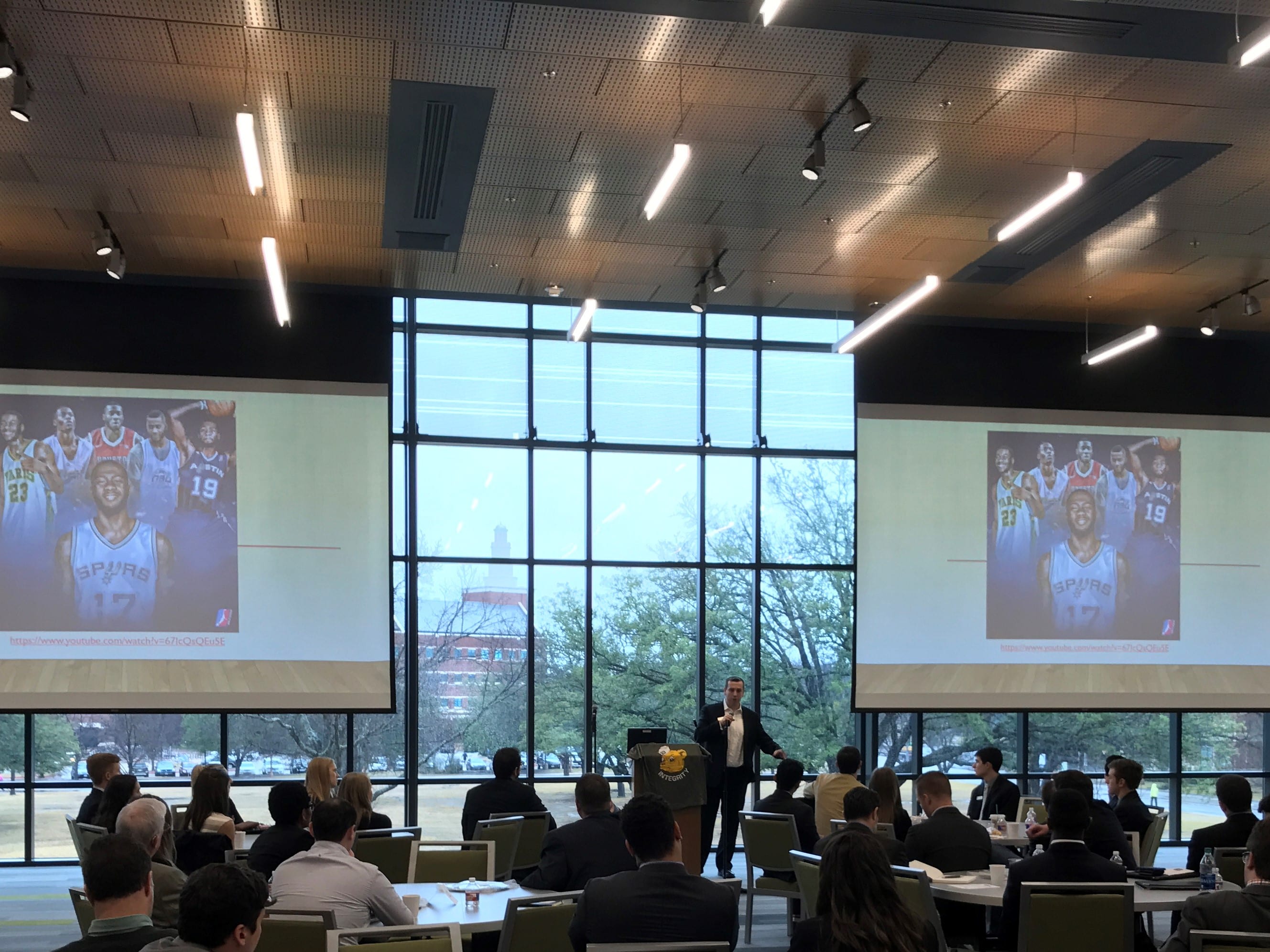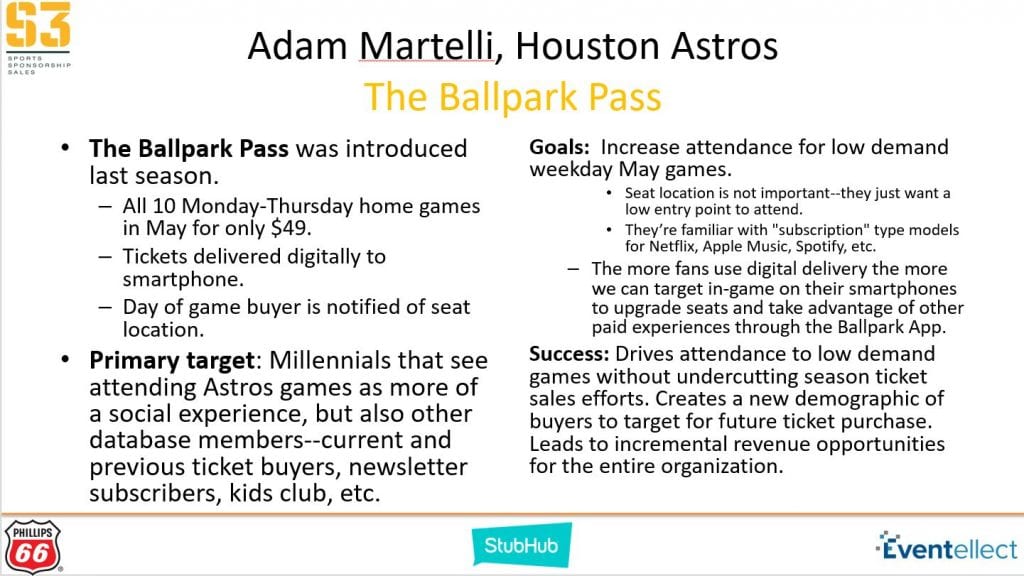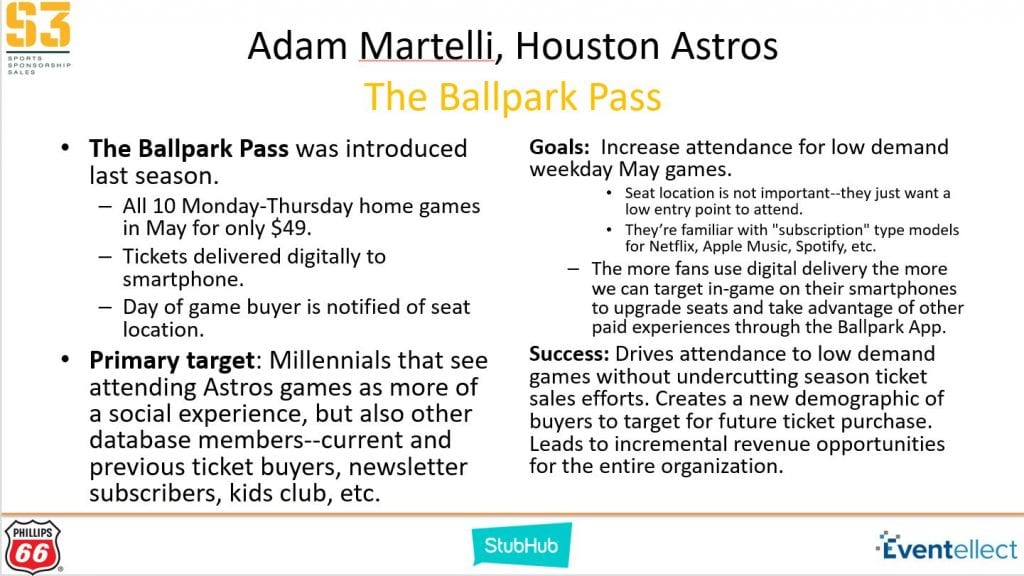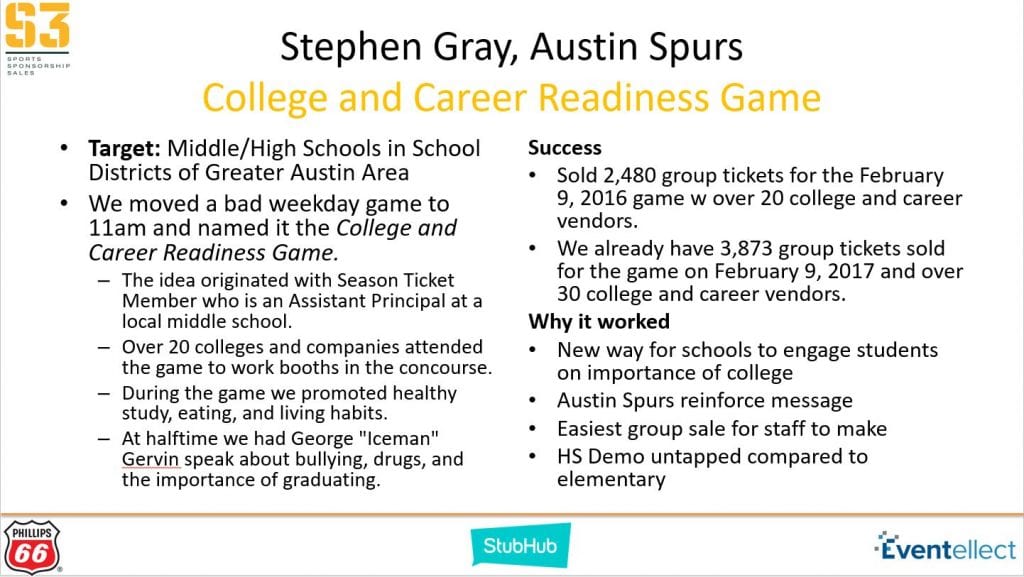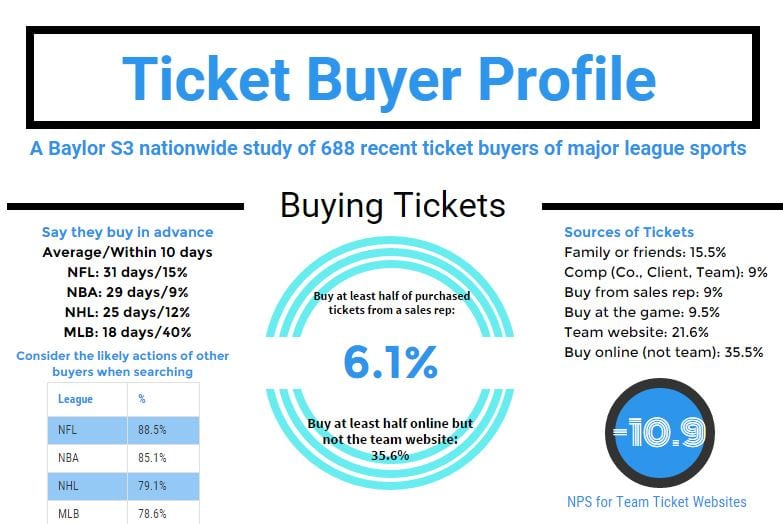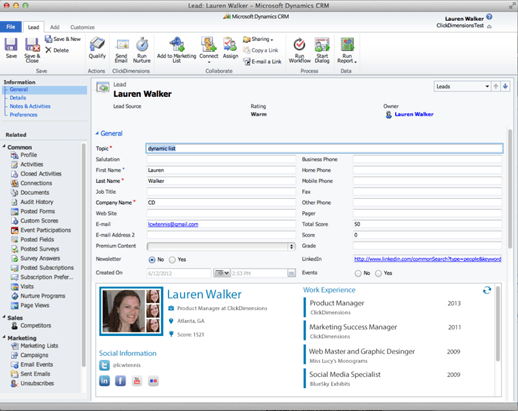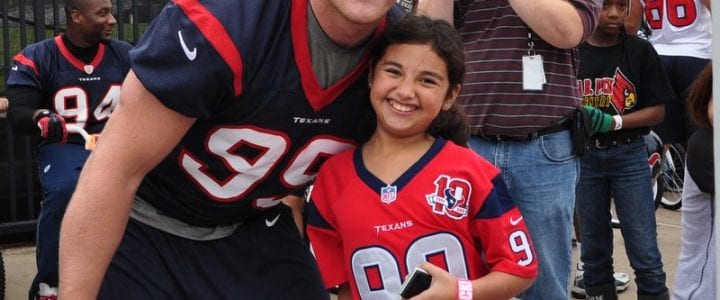by Darryl Lehnus – June 2017
Kicking off the S3 StubHub Ticket Campaign Competition
Learning best practices is one of the most valuable elements of the meetings, conventions, and seminars we all attend. To that end, with partnered with StubHub to launch the annual S3 StubHub Ticket Campaign Competition at the 2017 S3 Board Meetings this past January. We’d love to have more great submissions for this year’s (January 16-17, 2018) meetings. Click here to learn more.
Finalists for the 2017 competition were Joe Schiavi, Detroit Pistons; Evans Adonis, Charlotte Hornets; Stephen Gray, Austin Spurs; and Adam Martelli and Chase Kanaly, Houston Astros.
Shoot for your Seat
Joe Schiavi, Detroit Pistons
The Shoot for your Seat campaign was an interactive initiative to generate leads through invites from sales staff and marketing communications. Held during an off-season time frame (September), prospective clients were invited to the Palace for a fun four hours of activities. The attendees went through a series of station interactions with Piston personalities, introduction to new stadium food, a photo booth, behind the scenes staff-guided tours and the ultimate opportunity to take a shot from half court to win free season tickets. Phone follow-ups to everyone occurred within three days after the event. The results were dynamic as $100,000 in new sales were generated with an ROI of the event at 8-to-1.
Holiday Pack Mini Plans
Evans Adonis, Charlotte Hornets
The Hornets shared a “Holiday Mini-Pack” campaign that offered great flexibility and a nice Christmas present. The target audience was past holiday pack buyers and potential buyers who connected with Hornets via the email sent or linked the Hornets’ website. Leads were distributed to all sales reps with a window of November 7th thru December 30th to close the 5-game mini pack. Buyers could pick any 5 games for their packages (excluding Golden State). To motivate quick closes the first 300 buyers received a Mitchell and Ness Buzz City hoodie as a gift. The hoodie was a good gift for a friend or family member for Christmas. The campaign created an increase in holiday pack buyers averaging 30 packs a week for the duration of the campaign.
The Ballpark Pass
Adam Martelli and Chase Kanaly, Houston Astros

Some of the hardest MLB tickets to sell are the Monday-Thursday games early in the season. The Ballpark Pass focused on the 10 Monday through Thursday games in May. The primary target audience was millennials seeking a social experience. The value package of $49 includes all 10 games with tickets delivered digitally to smartphones with day of game seat assignment. The rationale behind the digital approach and seat location was that millennials place less emphasis on location and more on social experience. Sending tickets digitally is a common experience for this audience. The success of this campaign was to increase the database in this merging demographic and to increase attendance at low demand games without undercutting season ticket sales efforts. The Astros created 967 passes for almost $50K in new revenue and created an overwhelmingly positive digital experience for the target audience.
College & Career Readiness Game
Stephen Gray, Austin Spurs
The Austin Spurs took a single game approach to focus on middle and high school students. The College & Career Readiness event took a low attendance weekday game and converted it into a new revenue generator. They recruited over 40 colleges and companies to have a presence (booths) on the concourse to interact with the students. The game promotions and halftime encouraged healthy study, eating and living habits. Halftime included the Spurs iconic George “Iceman” Gervin challenging students to stay in school, lead a drug-free lifestyle, and to support anti-bullying. The game sold 2480 group tickets in 2016 and doubled its numbers for 2017. A key to its success is the organizational buy-in at all levels with a complete focus on high school aged demographics and their educational careers.
2017 S3 StubHub Ticket Campaign Winner
Based on a vote of the 65 managers and executives attending the S3 Board Meeting Advisory meeting, the winner was Stephen Gray and the Austin Spurs “College & Career Readiness Game.” Congratulations to the Austin Spurs and their staff for truly creating such a successful event!
Campaigns at a Glance
Below are the overview slides of each campaign. We look forward to your entry at the 2018 January 16-17 S3 Board Meeting! Click here to register.

